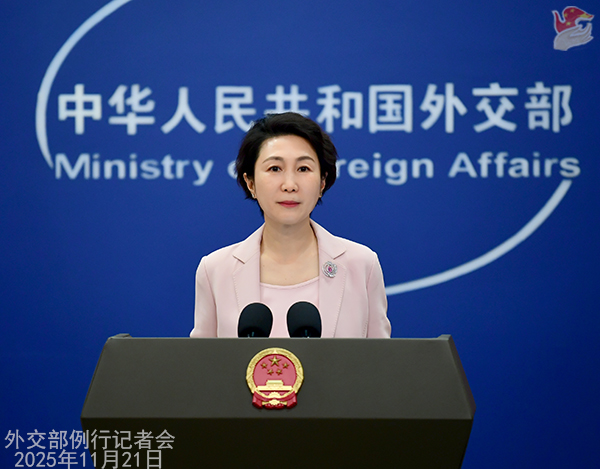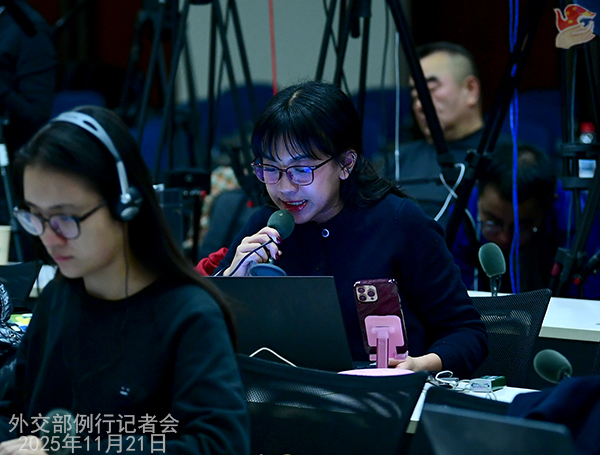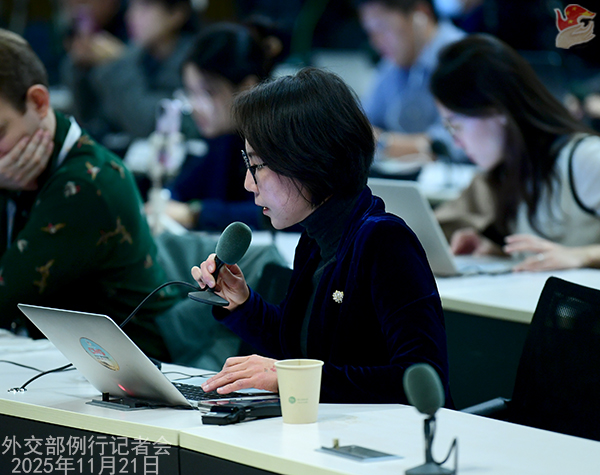
People’s Republic of China


CCTV: Yesterday, Premier Li Qiang, during his visit to Zambia, attended the ground-breaking ceremony of the Tanzania-Zambia Railway (TAZARA) revitalization project. Following the event, the three sides released a joint statement on building the TAZARA Railway prosperity belt. Can you share more details?
Mao Ning: Yesterday, Premier Li Qiang, Zambian President Hakainde Hichilema and Tanzanian Vice President Emmanuel John Nchimbi attended the ground-breaking ceremony of the TAZARA revitalization project. Under the personal guidance and effort of heads of state of the three countries, the TAZARA Railway, a milestone project of China-Africa friendship, will gain new vitality and dynamism in the new era. To catalyze sustainable development of the project after its revitalization, the governments of China, Tanzania and Zambia agreed to jointly build the TAZARA Railway prosperity belt, advance the comprehensive development of regions along the railway in a systematic manner, and unleash the potential of regional development in Tanzania and Zambia. Under the vision of China and Africa jointly advancing modernization that is just and equitable, open and win-win and eco-friendly, puts the people first, features diversity and inclusiveness, and is underpinned by peace and security, the three countries agreed to forge the railway into a path to freedom, development, friendship, happiness, green development and harmony. The three sides will stay committed to the principles of mutual respect, equal-footed consultation and joint contribution for shared benefit, advance the building of the TAZARA Railway prosperity belt, inject new impetus to socioeconomic development of Tanzania, Zambia and surrounding countries, and deliver more benefits to the local people.
AFP: Two Chinese nationals and two Americans have been arrested for allegedly illegally exporting cutting-edge Nvidia chips with AI applications to China. Justice officials said the four had conspired to illegally export these advanced chips to China through Malaysia and Thailand. What is the Foreign Ministry’s comment on this?
Mao Ning: I’m not familiar with that.
Reuters: There have been a number of social media posts by Chinese diplomats about the Japanese Prime Minister’s remarks on Taiwan. For example, a post made by the embassy in Manila was accompanied by a series of cartoons. Some analysts say this constitutes China relaunching its “wolf warrior diplomacy.” What does the Foreign Ministry make of this assessment?
Mao Ning: Japanese Prime Minister Sanae Takaichi made blatant and erroneous remarks on Taiwan. Those remarks implied the possibility of Japan’s armed intervention in the Taiwan Strait, eroded the political foundation of China-Japan relations, and triggered outrage and condemnation from the Chinese people. China will resolutely respond should anyone trample on the red line when it comes to the Taiwan question. The international community should draw its attention to what Japan is up to and whether Japan is still committed to the path of peaceful development.
AFP: Japanese Prime Minister Sanae Takaichi said today that she wants constructive and stable ties with China and that the country’s stance on Taiwan remains unchanged. Does the Foreign Ministry have any additional comment on this? (Similar question from Kyodo News)
Mao Ning: Japanese Prime Minister Sanae Takaichi made blatant and erroneous remarks on Taiwan. Those remarks implied the possibility of Japan’s armed intervention in the Taiwan Strait, triggered outrage and condemnation from the Chinese people, and eroded the political foundation of China-Japan relations. China has made clear its firm opposition.
If Japan truly hopes to develop the strategic relationship of mutual benefit with China and make the relationship a constructive and stable one fit for the new era, Japan needs to uphold the spirit of the four political documents between the two countries and its political commitments, retract the erroneous remarks at once, and take practical steps to honor its commitments to China.

Phoenix TV: It was reported that the Japanese government has recently completed its export of Patriot air-defence interceptor missiles to the United States. This is Japan’s first export of deadly weapons since Japan relaxed controls on arms exports. Sources say that Japan’s Liberal Democratic Party has begun discussions on revising the three security documents, including revising the three non-nuclear principles and increasing defense spending. What is your comment?
Mao Ning: Following the WWII victory, international treaties and instruments such as the Cairo Declaration, the Potsdam Proclamation, and the Japanese Instrument of Surrender clearly stated Japan’s obligations as a defeated country, requiring Japan to be “completely disarmed” and not to maintain such industries as “would enable her to re-arm for war.”
However, in recent years, Japan has kept easing the restrictions and seeking military buildup. It has increased defense budget for 13 consecutive years, and adopted the new security laws to remove the ban on exercising the right to collective self-defense. It has also replaced the Three Principles on Arms Exports with the Three Principles on Transfer of Defense Equipment and Technology to ease restrictions on arms exports and has even started exporting deadly weapons. While claiming it hopes to build a world without nuclear weapons, Japan is actually strengthening cooperation on extended deterrence, and even seeking to revise its three non-nuclear principles of not possessing, not producing and not permitting the introduction of nuclear weapons to open the door for enabling nuclear sharing arrangements. All these moves show that Japan is breaking free from the exclusively defense-oriented principle and “re-arming” itself at pace. People cannot help but ask, what exactly is Japan seeking to achieve?
If Japan seeks to go back to the path of militarism, violate its commitment to peaceful development and disrupt the postwar international order, the Chinese people will not allow it, and the international community will not allow it. Such attempts will only end in failure.
Ukrinform News Agency: The Ukrainian Defense Forces reported that earlier this week in the Donetsk region they destroyed a Chinese-made multiple launch rocket system used by Russian military. At the same time, it is known that China does not provide military support to Russia. So, Russia’s use of Chinese-made weapons may also be another attempt to discredit China as a supporter of Russia. How can the Foreign Ministry comment on the presence of Chinese-made weapons in the Russian army and will the Chinese side investigate this matter?
Mao Ning: I’m not aware of what you mentioned. Let me stress that China never provides lethal weapons to any party to the conflict and strictly controls dual-use articles.




